Raising the Next Generation: Asian American and Pacific Islander Parents and Caregivers
Asian American and Pacific Islander parents and caregivers report themes of optimism, independence, and self-determination.
White parents and caregivers surveyed express optimism about the future of the country for their children. They have a sense of pride in their families and say they frequently feel very lucky to be parents.
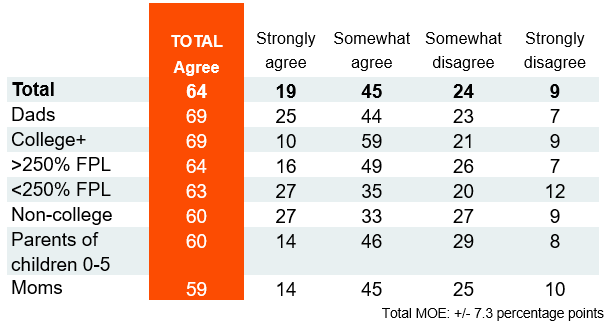
“I want [my daughter] to have more of a mission in life than me and I hope she can find that love or passion early … I also want her to give back to the world.” White focus group participant, California
The majority of White parents feel that their homes and communities offer them what they need to raise their families like healthy foods, safe places to play, and good schools.
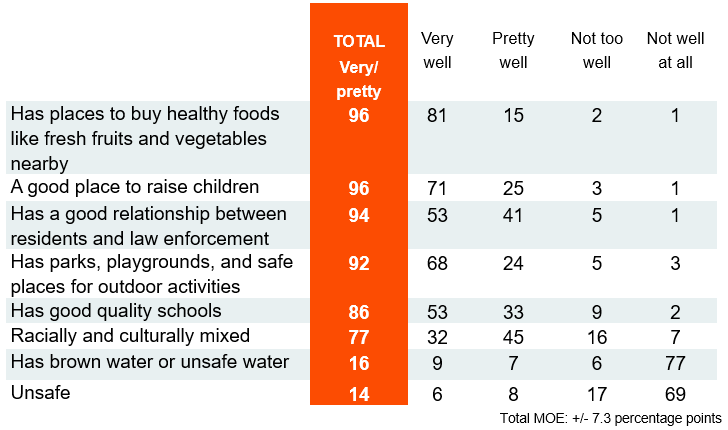
“I’d love to own my own house … If I could own the house I live in … I would love it because I love our school district.” White focus group participant, California
In addition to living in a safe place (only 14% feel that their home is unsafe), White parents in this study expect their children to benefit from having strong role models and enjoying a strong social support network. Yet, just half of White parents think it is very likely their children will have more opportunity to succeed than they did.
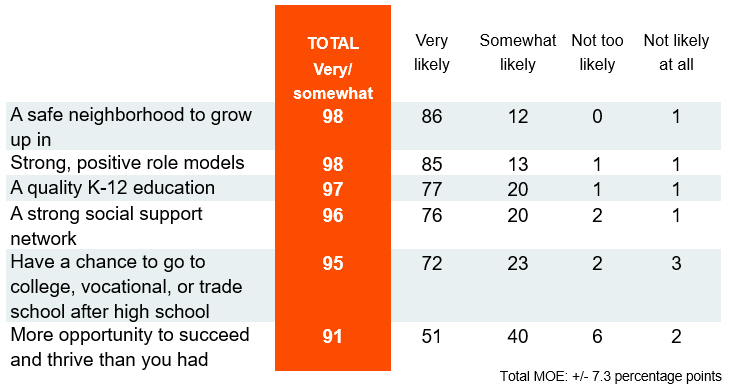
“Education doesn’t equal success, but it does equal opportunity. If we can educate them then it gives them a lot of opportunity to go wherever they decide to go in their lives.” White focus group participant, Colorado
White parents surveyed report being especially worried about their children struggling with anxiety, depression, and bullying as they grow up. More than 70% of White parents surveyed feel it is likely their children will experience anxiety and bullying, and more than 60% said the same for depression.
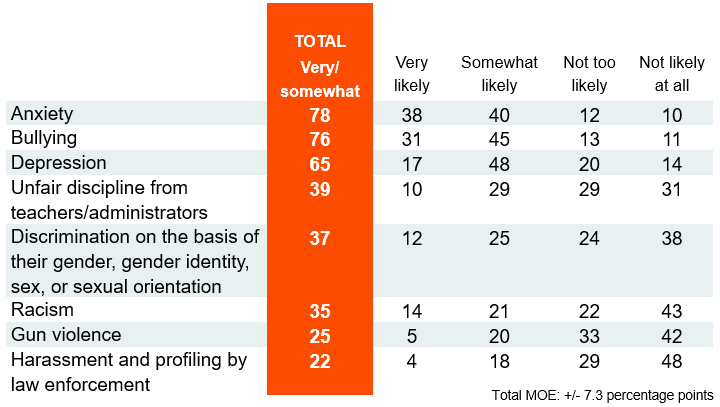
The majority of White parents and caregivers surveyed are worried that America doesn’t offer every child the same opportunity to succeed. And while they report dramatically less experiences with racism than people of color, half of White moms report being treated unfairly because of their gender.
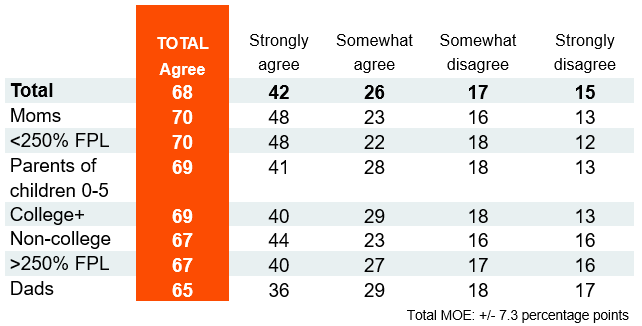
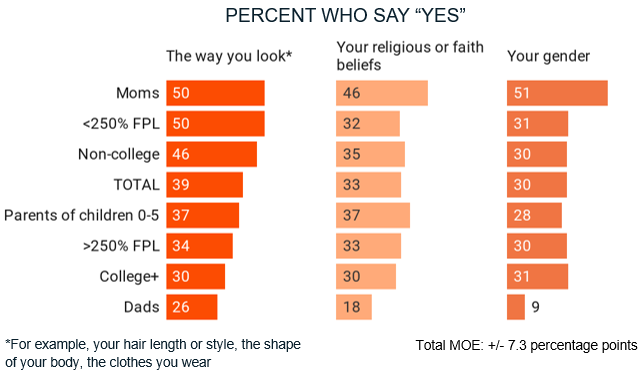
White parents and caregivers report that they rely on creative problem solving, their strong work ethic, and a willingness to ask for help when they hit tough times. Coupled with feelings of confidence that they are doing everything they can to help their children succeed, White parents and caregivers hold a positive outlook for the next generation.
This study includes equal representation of parents and caregivers from five different racial and ethic backgrounds: White, as well as Asian American and Pacific Islander, Black, Indigenous, and Latino. Explore detailed reports of the survey findings for each group here.
Asian American and Pacific Islander parents and caregivers report themes of optimism, independence, and self-determination.
Black parents’ and caregivers’ experience raising children is one that is marked by optimism while facing long-standing, systemic barriers to thrive.
Indigenous parents and caregivers surveyed paint an interesting picture—a dichotomy that reflects a complex and complicated reality of their nations and communities in America.
Latino parents and caregivers see a hopeful future for their families and are determined to see their children get more opportunities to succeed in life than they did.
“Raising the Next Generation: A Survey of Parents and Caregivers” examines what it is like to raise children in America today by asking questions to equal numbers of parents and caregivers from five different racial and ethnic groups: Asian American and Pacific Islander, Black, Indigenous, Latino, and White. The survey builds on interviews and focus groups conducted over an 18-month period in 16 cities and in seven different languages with parents and caregivers from more than a dozen racial, ethnic, or cultural backgrounds. The survey and qualitative research were conducted by the nonpartisan research firm PerryUndem and a broad set of partners with culturally specific expertise.